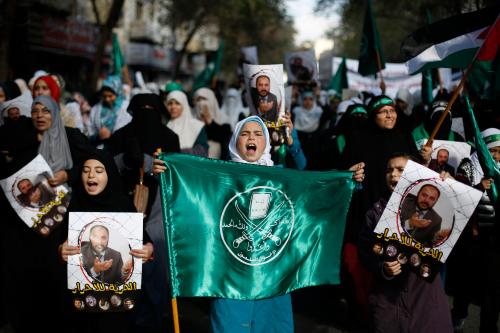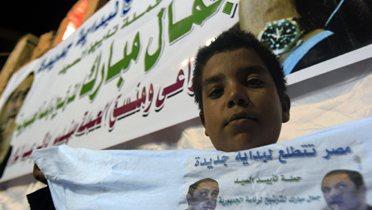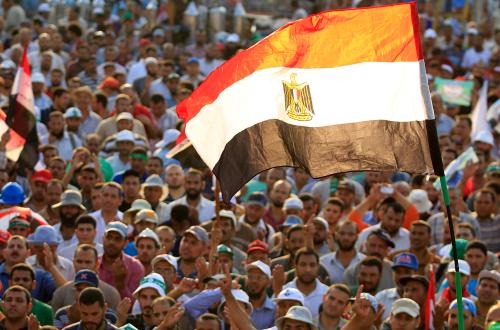Content from the Brookings Doha Center is now archived. In September 2021, after 14 years of impactful partnership, Brookings and the Brookings Doha Center announced that they were ending their affiliation. The Brookings Doha Center is now the Middle East Council on Global Affairs, a separate public policy institution based in Qatar.
Jordan’s parliamentary elections on September 20 heralded the return of the Muslim Brotherhood, having survived a major attempt by the Jordanian regime to dismantle and destroy it. After such weakening and a decade-long electoral boycott, the group’s political party—the Islamic Action Front (IAF)—did well to contest seats throughout the country, but this time only as part of a wider coalition. The coalition claimed an estimated 16 of 130 seats in parliament.
This success at the ballot box is tempered by ongoing issues that belie the progress of moderate Islamism in Jordan more generally. This indicates that the king and his advisors are still committed to ensuring that any role for political Islam in the country remains highly constricted.
Pushed to the margins
Although the Muslim Brotherhood is Jordan’s oldest political movement and has previously played the part of a “loyal opposition,” the ruling regime has always regarded it with suspicion. Since coming to the throne in the late 1990s, King Abdullah has increasingly viewed the Brotherhood’s agenda as hawkish and at odds with his ambitions, as well as domestic and regional security concerns. Since the rise of ISIS in neighboring Iraq and Syria, Jordan’s king has increasingly allied himself with Western powers who have declared war on ISIS and use the kingdom as a command and control center for training and supporting the fight against the group. The Brotherhood’s hostility to Jordan’s peace deal with Israel and King Abdullah’s increasing dependence on the United States as a strategic partner—along with the group’s inclination to support other Islamist actors such as Hamas—indicated to the regime that it presented a latent threat.
Within the Brotherhood, whose members are of predominantly Palestinian origin, there emerged two contending strands: hawks and doves. It had always been the hope of the Jordanian authorities that by mixing censure, surveillance, and arrest of the hawks, on the one hand, with support for the doves on the other, that they could successfully co-opt the group. Meanwhile, splits within the Brotherhood emerged over a number of issues, including participation in Jordan’s electoral system. This resulted in a decade-long boycott of elections, which the Brotherhood contended were biased against it.
Brotherhood-led protests during the Arab Spring—and later, against Jordan’s support for the Western and Arab anti-ISIS coalition’s airstrikes in Syria and Iraq—garnered only modest popular support. The Brotherhood had initially hoped to capitalize on the Arab Spring and the ascendency of the movement regionally, especially following the electoral successes of Egypt’s Brotherhood and Tunisia’s related organization, Ennahda. However, the subsequent backlash, initiated by General Abdel Fatah el-Sissi in Egypt in 2013 and supported by Gulf states like Saudi Arabia and the UAE—combined with the rise of salafi jihadi elements like ISIS—has limited the Brotherhood’s ambitions in Jordan. Fear soon spread that King Abdullah would succumb to growing pressure from Saudi Arabia to declare the Brotherhood a terrorist organization.
This fear persisted throughout 2014 as it became increasingly apparent that the regime was ready to decisively distance itself from the Muslim Brotherhood and launch an unprecedented broadside against it. It began to look like King Abdullah’s patience was wearing thin, especially with the regional situation. This was tellingly evident in the arrest, trial, and subsequent imprisonment of the Brotherhood’s deputy leader, Zaki Bani Irshied, on charges of treason. Pro-regime media published commentaries painting the group as inimical to Jordan’s pluralistic character. Throughout 2015 and 2016, the regime effectively dismantled the Brotherhood, declaring it illegal and closing its headquarters in Amman. It also encouraged splits within the group, resulting in the Zamzam initiative and extending a license to the newly declared Muslim Brotherhood Society (MBS), led by the group’s former general overseer Abdul Majeed Thneibat.
Phoenix rising from ashes?
Countering these setbacks, for this month’s elections the IAF ended its boycott and circumvented the legal barriers against it to publicly test the level of support it can still muster. In doing so, it dropped its iconic “Islam is the solution” slogan and fielded candidates in the majority of electoral districts under the banner of the National Coalition for Reform (NCR), uniting with other groups including Christians. Symbols of Qurans and crossed swords, so ubiquitously associated with past Brotherhood campaigns, were replaced with new imagery associated with a modern national coalition.
A return of Jordan’s once-dominant opposition group to the lower house parliament, however, is unlikely to herald significant change. The 16 seats the NCR won (with an estimated 8 for actual Brotherhood members) is a far cry from what it won in elections in the late 1980s, when it was also invited into government. With so few seats, the Brotherhood will not be able to use the parliamentary platform to act as a meaningful opposition. Nevertheless, given recent travails, the modest success at the polls is a victory of sorts. It signals to the king and his court that though the Brotherhood may be down, it is not out, and the concerns it has championed still resonate with Jordan’s citizens.
For the Muslim Brotherhood, successfully re-entering electoral politics at a time when its position in Jordan had become increasingly untenable gives it a chance to reassert itself. Still, the group’s potential impact will be circumscribed by the limits of the national debate about Jordan’s stability at a time of domestic and regional instability. The Muslim Brotherhood, no matter how moderate its past positions, appears to be on the wrong side of a battle line which King Abdullah drew when his kingdom was targeted by ISIS. Hence, this particular phoenix will have its wings severely clipped.







Commentary
Is Jordan’s Islamist phoenix rising again?
September 29, 2016